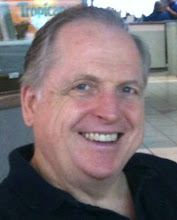The Saint Charles Learning Community had its annual Holiday Gathering this evening at the Social Club located on the grounds of the Q-Center in St Charles, IL. Most of the professionals attending the gathering had been employed by Arthur Andersen, Andersen Consulting, Accenture, or Andersen Worldwide while those organizations were at the peak of their success. Of these, only Accenture remains intact and still growing.
All were involved in developing, delivering, or supporting learning programs and events for the Andersen organizations. I was with Andersen Worldwide and Andersen Consulting for a little over five years. I left Andersen Consulting (now Accenture) eleven years ago to pursue other consulting interests at Origin Technology in Business (now AtosOrigin).
It was wonderful to reconnect with people I enjoyed working with and had not seen for many years. It is amazing that, out of my 40-year career to date, my time with the Andersen organizations reflects my best experience of working with top quality professionals sharing many of the same values.
Some people who left an Andersen organization were fully involved in leadership development, talent management and training at such organizations as Sears Holding, MacDonalds, and Office Max. Others were independent consultants and coaches. Very few had completely changed careers.
The conversation moved to the new economy and the unemployment challenge. In this recession, many white-collar jobs were eliminated. Families who relied on incomes in the 60 to 100 thousand dollar range may not find new jobs paying those wages. Other workers employed in well-salaried professionals (such as auto workers) may also not have any new jobs in that profession to go back to.
In the consulting arena, there are fewer "Big Four" firms for consultants to work for. The key to success for the new economy--in terms of reducing unemployment--is the explosive growth of small businesses. These small businesses will need small business consultants to help them organize, grow, and expand. There are a few self-help books for small businesses such as The e-Myth Revisited by Michael Gerber.
Large consulting firms created content-specialized consultants focusing on information technology, enterprise resource planning, business process re-engineering (and other focus areas). Small businesses will need contextual consulants who can diagnose the challenges to the small business, help the decision-makers develop a change strategy, and help develop the change plan and training to allow the employees to implement the changes to help the business to grow.
Showing posts with label contextual. Show all posts
Showing posts with label contextual. Show all posts
Thursday, December 3, 2009
Wednesday, December 2, 2009
Singing and Consulting--What's the Connection?
On reflecting about my consulting practice today, I was reminded about my singing voice. Some people have "absolute pitch" or "perfect pitch" (usually the note of "A"). They know that note without any prompting or cues. Others, like me, have "relative pitch." (I can't find the "A" and, when someone else does, I can sing harmony with them around their notes. I have sung in many choirs and have made a Christmas CD with a small chorus. I lettered in Chorus (among other things) in High School and have had some practical experience with applying these concepts to singing.
Today I realized that my consulting practice is much like my singing. My "relative pitch" translates to contextual consulting (rather than content consulting). I can go into almost any organization and, within that context, can identify what needs to be changed and help the decision-makers develop a strategy for change and train employees to implement the change.
Content consulting would be for me to have a training about a specific topic I am knowledgable about and to provide that training to people. While I have done that in the past and have several hundred hours of training available in English and Spanish, I do not consider this my best work.
Context consulting is more difficult to market than content consulting. The actual consulting will change depending on the needs of the client organization. When people look for consultants, they frequently are looking for content background--in human resources, Enterprise Resource Planning (ERP) solutions, strategy, marketing, sales.
"C-level" executives (Chief Executive Officers, Chief Operating Officers) need to function from the contextual level to make sure that all the areas of their organization are functioning smoothly.
Now I need to reflect more on the concept of contextual consulting and how to market it. Anyone have any suggestions?
Today I realized that my consulting practice is much like my singing. My "relative pitch" translates to contextual consulting (rather than content consulting). I can go into almost any organization and, within that context, can identify what needs to be changed and help the decision-makers develop a strategy for change and train employees to implement the change.
Content consulting would be for me to have a training about a specific topic I am knowledgable about and to provide that training to people. While I have done that in the past and have several hundred hours of training available in English and Spanish, I do not consider this my best work.
Context consulting is more difficult to market than content consulting. The actual consulting will change depending on the needs of the client organization. When people look for consultants, they frequently are looking for content background--in human resources, Enterprise Resource Planning (ERP) solutions, strategy, marketing, sales.
"C-level" executives (Chief Executive Officers, Chief Operating Officers) need to function from the contextual level to make sure that all the areas of their organization are functioning smoothly.
Now I need to reflect more on the concept of contextual consulting and how to market it. Anyone have any suggestions?
Subscribe to:
Posts (Atom)



